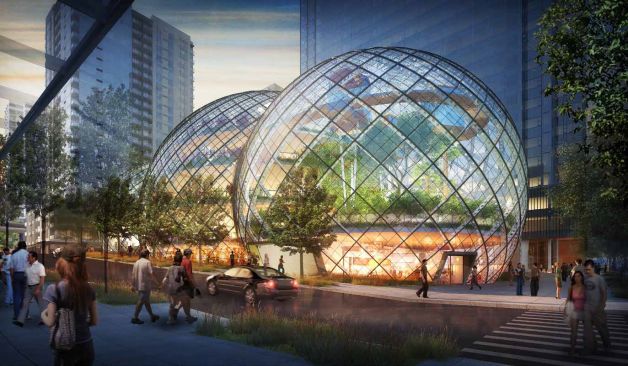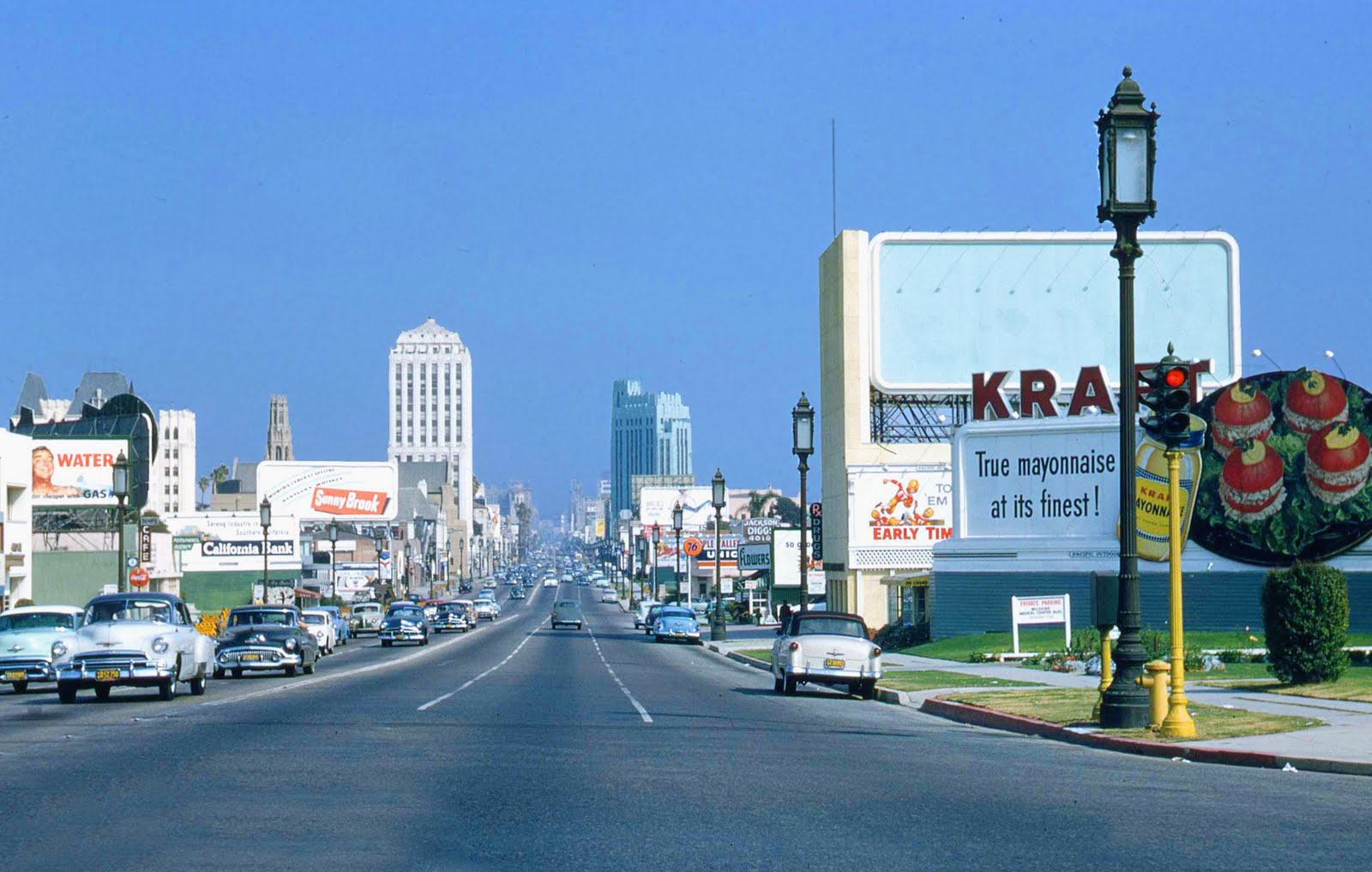Amazon is building a trio of biospheres–the kind filled with crazy laughter, not crazy ants–in Seattle to serve as new company headquarters. Unlike Google and Nintendo, which live in that city’s suburbs, Bezos’ bunch are heading downtown, bringing excitement to the locals but also fears that they’ll be priced out of the fun. From Colin Marshall at the Guardian:
“Pending the completion of the towers, Amazon’s current South Lake Union operations go on in clusters of lower-rise buildings whose purpose you couldn’t necessarily surmise through a streetcar window. But other, subtler clues identify their function: the sudden preponderance of blue Amazon badges and unflattering Amazon logo-emblazoned hooded sweatshirts on the street; the nearby dentist’s and even masseuse’s offices advertising their acceptance of Amazon health insurance; the recorded voice inside the streetcar itself advertising the upcoming stop as ‘sponsored by Amazon.com.’
Nobody could ever mistake Microsoft and Nintendo’s Redmond campuses, surrounded for miles by little more than grass and parking, for cities. Even the most Amazonian blocks of South Lake Union, by contrast, never feel less than urban in form. Maybe it has to do with the nearness of the Seattle skyline, or with all the construction adding to the bustle, or with the fact that people actually live here, not just sleep on the plush employee-lounge couches. Still, much of it struck me as slightly too new, and slightly too thought-through; I couldn’t quite shake the feeling of spending time in a company town, albeit a company downtown.
Even in its incomplete state – and even more than America’s older city centres, now coming back to life largely through infusions of high-end shopping – South Lake Union caters to those prepared to spend. You may do it with relative modesty, at the food truck parked at the end of the streetcar line offering kale salads and burgers with bacon jam and jalapeño aioli; you may drop a few dollars more at the speciality hot-chocolate shop or the combined dog bakery and boutique; or you may go all the way and get your teeth capped, purchase a Bang & Olufsen stereo system, and put in an order for an $80,000 electric sports car at the neighbourhood Tesla showroom.”


